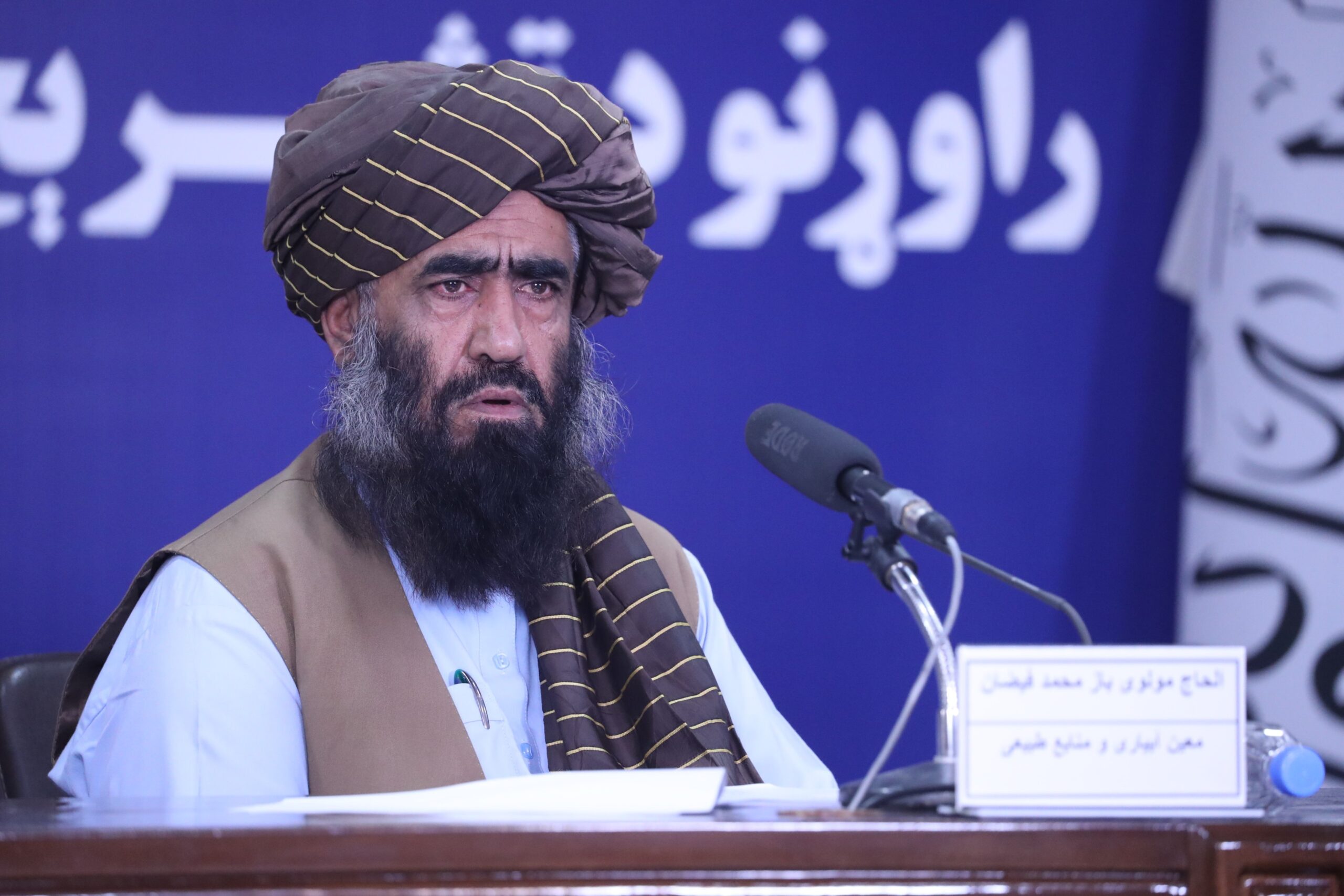KABUL (SW) – The de-facto Ministry of Agriculture, Irrigation and Livestock (MoAIL) in collaboration with partner agencies, has implemented 271 projects worth $300 million across agriculture, irrigation, and livestock sectors, officials reported.
On Thursday, during the annual performance review press conference held in Kabul, officials from the MoAIL highlighted achievements of the ministry over the past year.
Acting Minister of MoAIL Ataullah Omari, stated that key accomplishments include the distribution of 33,000 metric tons of improved wheat seed and 54,000 metric tons of chemical fertilizers to 660,000 farmers.
Additionally, “1.3 billion Afghanis have been allocated from the Agriculture Development Fund to support farmers, livestock keepers, and the private sector,” he added.
The ministry has also constructed five cold storage facilities with a total capacity of approximately 1,190 metric tons in Maidan Wardak, Kabul, and Laghman, and 11 drying warehouses for fruit preservation in various provinces.
Sadr Azzam Osmani, Deputy Minister for Agriculture and Livestock, noted the establishment of over 1,500 demonstration plots to promote modern agricultural practices and the protection of 80,000 hectares of land from “epidemic pests.”
Osmani emphasized the organization of large agricultural exhibitions in the last spring and autumn to boost the sector and market products.

Furthermore, Baz Mohammad Fayzan, Deputy Minister of Irrigation and Natural Resources, reported the protection of 1.7 million hectares of forest and 30 million hectares of rangeland across 34 provinces, along with the planting of 125,200 saplings for forest restoration.
He added that over the past year, more than 690,000 saplings of both fruit-bearing and non-fruit-bearing varieties have been distributed.
“Over the past three years, a total of 82 million saplings have been planted through national planting campaigns.”






